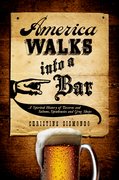C’mon, Mr. Capote. Tell us what you really think.
Even today, Truman Capote remains one of most America’s most controversial authors. Following early literary success his flamboyant became well-documented at the many parties and restaurants he frequented. Always claiming to be researching his next book, Capote was a social celebrity and may have had just as many strong opinions about other people as they had about him.
In the quiz below, you’ll find a series of quotes from













